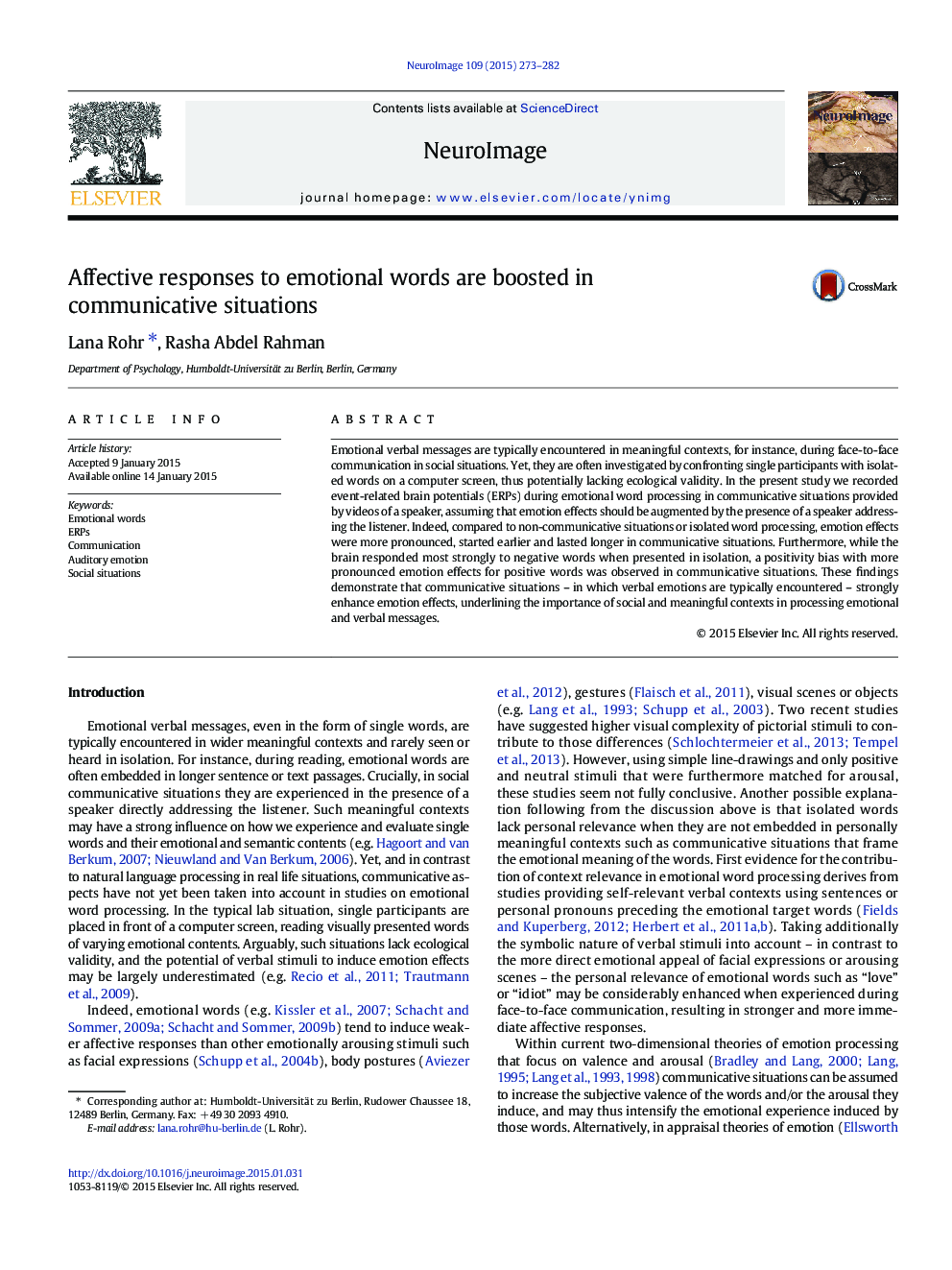| Article ID | Journal | Published Year | Pages | File Type |
|---|---|---|---|---|
| 6025617 | NeuroImage | 2015 | 10 Pages |
Abstract
Emotional verbal messages are typically encountered in meaningful contexts, for instance, during face-to-face communication in social situations. Yet, they are often investigated by confronting single participants with isolated words on a computer screen, thus potentially lacking ecological validity. In the present study we recorded event-related brain potentials (ERPs) during emotional word processing in communicative situations provided by videos of a speaker, assuming that emotion effects should be augmented by the presence of a speaker addressing the listener. Indeed, compared to non-communicative situations or isolated word processing, emotion effects were more pronounced, started earlier and lasted longer in communicative situations. Furthermore, while the brain responded most strongly to negative words when presented in isolation, a positivity bias with more pronounced emotion effects for positive words was observed in communicative situations. These findings demonstrate that communicative situations - in which verbal emotions are typically encountered - strongly enhance emotion effects, underlining the importance of social and meaningful contexts in processing emotional and verbal messages.
Related Topics
Life Sciences
Neuroscience
Cognitive Neuroscience
Authors
Lana Rohr, Rasha Abdel Rahman,
